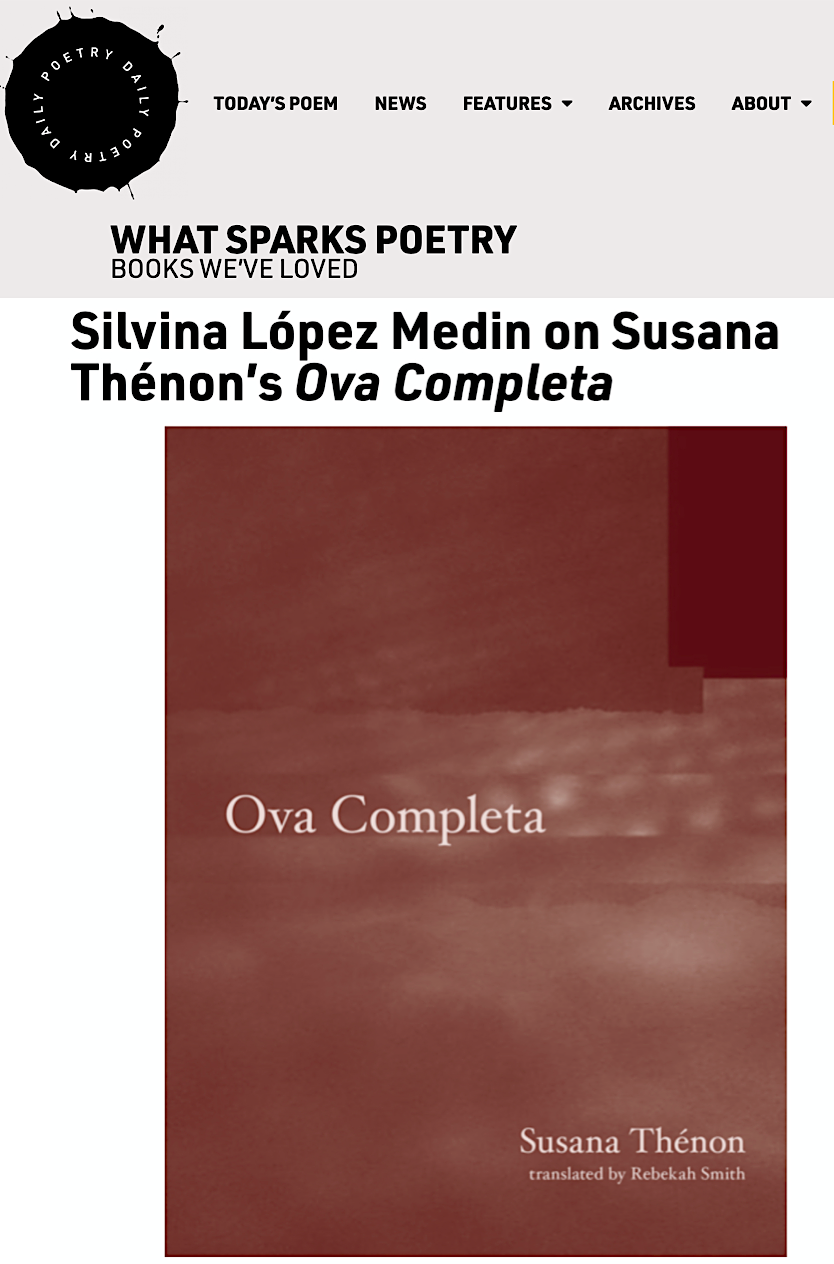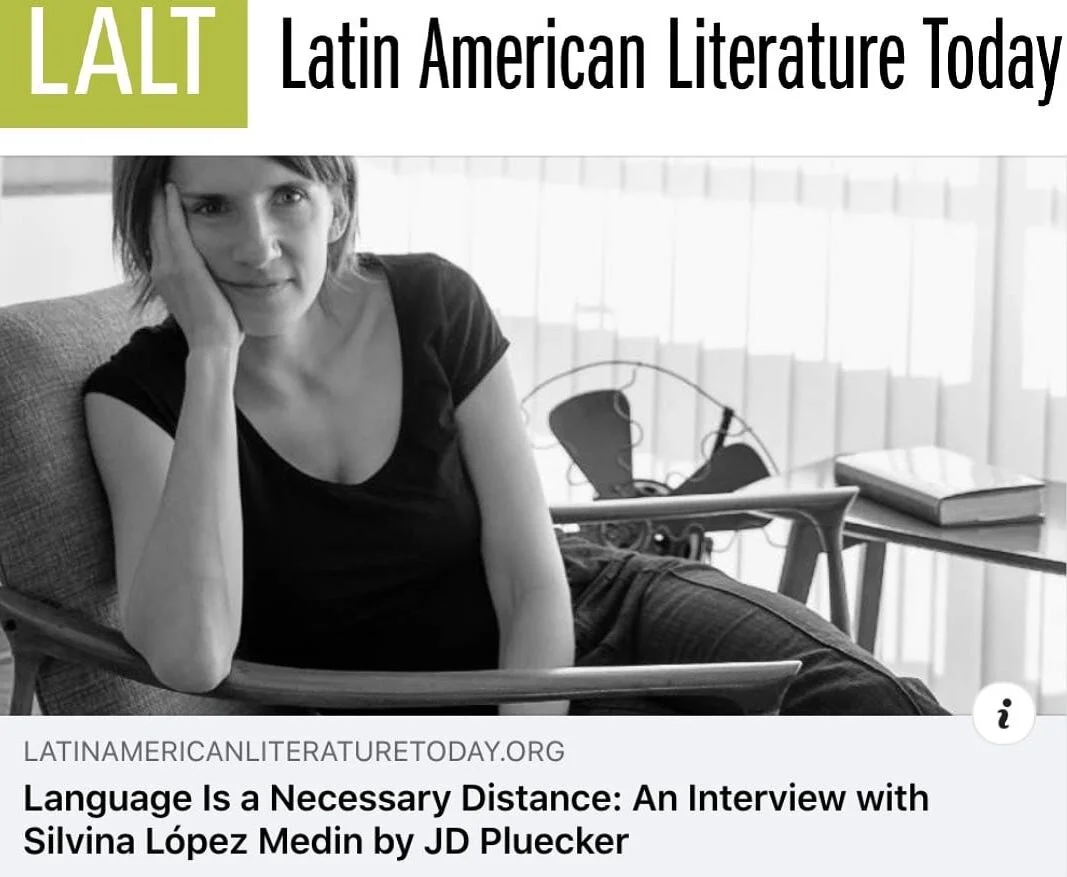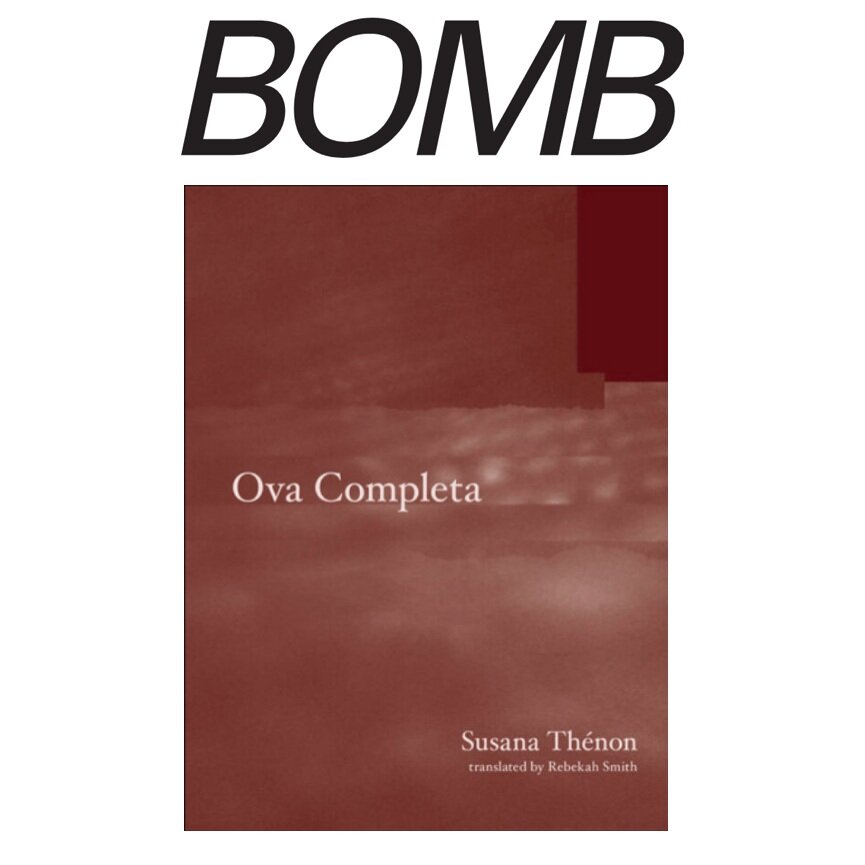Essays
Poetry Foundation | Not a Beginning, but a Following
I don’t know where to begin, but first: I don’t know in which language to do so. I can’t detach place from language. I’ve written these opening sentences in my native Spanish, but the title of the series—This Be the Place—sticks to me, and when I look back at this line it’s already in English. I follow the arc of the title from “This,” but when I try to get to “Place,” I stumble onto “Be.”
The Georgia Review | What Seems Motionless Waits
My great-grandmother crossed the ocean from Spain to Argentina in 1920, following her husband, who had left her and their two children behind and from whom she hadn’t heard for years. In order to be able to travel without the necessary permission from her absent husband, her identity card states that she is “soltera”—“single.” Tracing the word soltera, my great-grandmother erases her husband through language, lying on paper, building a fiction.
Poetry Foundation | There Is Not Enough Air to Say It All
In the opening paragraph of her book, MOTHERs, Rachel Zucker says, “In fifteen minutes I’ll need to stop writing and pick up my son.” I had never encountered that feeling of urgency, intermittence, desire to write—crushed within motherhood—said in such a straightforward, condensed manner: the words enact what they are saying, they move from time to son and traverse the writing in between.
In an hour I’ll need to stop writing and pick up my sons.
Poetry Daily | On Susana Thénon’s Ova Completa
The copy I have of the original Argentine 1987 edition of Susana Thénon’s Ova Completa has a sticker from Blockbuster in the lower righthand corner of its cover. I bought it at the now-defunct video store chain in Buenos Aires, a couple of decades ago. This—the unexpected finding of a poetry book in a popular video store, the sticker with a word in a language other than the Spanish of the book, the irony of poetry being labeled a blockbuster, the gap left by a letter torn from the sticker and how that gap transforms the word—condenses some of the aspects of Ova Completa that I love: dislocation, play, layering, mixing, tearing: of times, spaces, structures, genres, languages.
Interviews
Latin American Literature Today | Language Is a Necessary Distance: An Interview with Silvina López Medin by JD Pluecker
JD Pluecker: Silvina, I’m happy to be able to ask you a few questions about your book, Poem That Never Ends, just out from Essay Press on April 30, 2021. I read your beautiful and moving book as a meditation on parenting, motherhood, migration, movement across borders, absence and presence, generational silences, disability, hearing, language; the list could go on and on, as the book is so very rich and multivalent.
MoMA | To Cast Doubt on the Assumed Nature of Things: An Interview with Lucrecia Martel
by Silvina López Medin
In May 2019, the Argentine filmmaker Lucrecia Martel was invited by the Patricia Phelps de Cisneros Institute to give a lecture at MoMA. Martel’s first feature film, La ciénaga (2001), attracted much attention because of the tension between its powerful imagery and soundscape, its exploration of power relations as rooted in the family, and an extreme and estranged sensorial quality. The idea of this interview is to leave a written trace of her visit to MoMA, where she spoke about an alternative, sound-based understanding of time.
Harriet Books/Poetry Foundation | Discomfort as Guiding Element: An Interview with Elisa Taber
by Silvina López Medin
In late 2021, Ugly Duckling Presse, where I am an editor, will publish a trilingual edition (in Guaraní, Spanish, and English) of a chapbook by the contemporary Paraguayan poet Miguelángel Meza called Ita ha’eñoso / Ya no está sola la piedra formerly and again known as Pyambu / Dream Pattering Soles, as part of the Señal series for contemporary Latin American poetry. Meza’s book references Mbyá Guaraní myths as it blends the cosmos and the everyday and blurs the “boundaries” between deities, the human and the non-human.
The process of editing the book with my colleague Jen Hofer, and my interest in exploring my mother’s Paraguayan roots, led me to want to interview Meza’s translator, Elisa Taber.
MoMA | An Always Open Circle: An Interview with Paz Encina
by Silvina López Medin
In her work, Paraguayan filmmaker Paz Encina (born 1971) combines fiction and archival material, precise imagery, and an unusual focus on sound to address issues that mark the history of her country—like the Chaco War (1932–35), the long dictatorship of Alfredo Stroessner (1954–89), massive deforestation, and the displacement of indigenous communities. Her first feature film Hamaca paraguaya (2006) was released to critical acclaim and won the FIPRESCI Award at the Cannes Film Festival. Soon after Encina completed her second feature, Ejercicios de memoria (2016), MoMA organized a retrospective of her work. This conversation took place as she was finishing her fourth feature, Eami.
Harlequin Creature | When You Say Erase Do You Mean Stop Existing?: An Interview with Hilary Kaplan
by Silvina López Medin and Sarah Lawson
Ugly Duckling Presse published The Territory Is Not the Map, a chapbook by the Brazilian poet Marília Garcia, as part of its Señal series for contemporary Latin American poetry. We met with Hilary Kaplan, Garcia’s translator, when she came to New York City for the book launch at NYU. We were interested in talking with her about a book which—instead of obscuring the process of translation and the role of the translator—begins with the poem “A Departure with Hilary Kaplan,” exposing this very practice: “When you say / erase / do you mean / stop existing?” … “is departure simply / when someone goes out / or does it mean they’re / going away forever?” Garcia wrote this poem from a series of questions Kaplan posed to her about her translations, in the vein of Charles Bernstein’s “A Test of Poetry.”
Poems
Hyperallergic | Excerpt from Poem That Never Ends
I AM WRITING THIS IN MY HEAD, MY HANDS INSIDE GLOVES THAT DON’T MATCH
I lose at least one
from the pair per season
and hold on to the other, that single
glove left behind still contains the lost one.
That is to say
on the winter break I read Pascal Quignard,
in every image there’s a missing image,
says he, I add
in every sound there’s a missing sound,
say: my mother
how she, because of her hearing impairment,
is permanently reconstructing
sentences from fragments, isn’t that
writing?
Poetry Daily | Excerpt from Poem That Never Ends
THE SOUND OF BLINDS BEING PULLED UP IS THE FIRST SOUND
It’s in your hands: the weight of the slats. All slightly bent to one side. As someone that bends with their ear towards the other trying to hear more: what? Your grandmother, like your mother, could only hear 30% of all things. You cross out the word grandmother, you’ll say your mother’s mother. You’d rather have the word repeated—mother— build a chain with no missing ring. You’re not pulling yet, but it’s in your hands, the chain that raises the metal slats. You hear what your mother’s mother wouldn’t hear: the slats clattering. She, who used to live between blades—her scissors, silent to her—opening and closing on the cloth. Cutting, cutting until what? Until she reached an edge: a pair of eyes looking at her from the other side of the sewing table.
Watch a video of me reading this poem.
Lit Hub | Excerpt from Poem That Never Ends
When you have hearing loss there’s a blurred line between statements and questions. When my mother was a child her aunt would take her to the theatre, she would be lost among words she could not grasp, would not look at the stage but stare at the closest exit. Is what you’re writing now poetry, she soon might ask. I turn the pages in my journal until I find a quote in a nearby entry.
Lyric was from its inception a term used to describe a music that could no longer be heard.
A metallic sound precedes the voice on the loudspeaker: we have begun our descent, stow your tray table, pass any remaining service items and unwanted reading materials to the flight attendant.
Two Lines | “Pentimento” | from That Salt on the Tongue to Say Mangrove
Translated by Jasmine V. Bailey
The story falls short
a man, a woman, a lake
a line falls short
fails to go past the tongue
I want to say stroke
from fist to caress
the scale unfolds, the gesture unfolds
never resolves from contour.
Brooklyn Rail | Seven poems from That Salt on the Tongue to Say Mangrove
Translated by Jasmine V. Bailey
Wreck upon wreck:
the asphalt, the old Mercedes Benz, my uncles inside it
everything creaking, that tree
overgrown, buckling the pavement
its shade touching everything
like a lapacho or a mother. Inside, always
barking: the dog, years in the playroom,
devoured furniture, photos, a finger—
you have to yell
just to be able to hear yourself; hoarse,
they go out onto the balcony in search of happiness, a river
although there is no river there is no sea
there is torrent
water that batters and breaks, and the storm follows.
Ploughshares | I Should Be Writing a Foreword
Selected by guest editor Tracy K. Smith
I sit at this threshold
stone steps
as I sat weeping one day
in front of a red door
a stranger handed me some tissues
he said no
te preocupes, no
vale la pena, it wasn’t the beginning
of a conversation, he kept on going and I kept
the tissue in my hands
crumbled in the end into
small bits of paper
like the ones my father would stick on his face
after he shaved
when there is an open wound there is
a risk that something will stick to it
Dilettante Army | Creek
In response to a still from Ana Mendieta’s Earth Bodies series, Silvina López Medin’s ekphrasis, “Creek,” balances lushness and starkness, amplifying the fluent fullness of Mendieta’s work while maintaining, always, the sense of working under constraint, as water flows in a channel. The poem’s intricate repetitions and spare armature make it, like Mendieta’s image, a kind of nude (rather like those in Anne Carson’s Glass Essay, “naked glimpse[s] of [] soul”) and also a sweet subversion of the tradition of artistic nudes, a nakedness that refuses to bare its secrets.
Selected Translations
MoMA | On Language and Its Limits: The Illegible Writings of Mirtha Dermisache
By Fernando Bruno
Translated from the Spanish by Silvina López Medin
Fernando Bruno analyzes the particular relationship between painting and writing in the “illegible writings” of Argentine artist Mirtha Dermisache, examining the specific ways in which it contrasts with some of the most significant artistic tendencies at the end of the sixties and seventies in Argentina.
MoMA | Empathy and Complicity in Regina José Galindo’s America’s Family Prison
By Rossina Cazali
Translated from the Spanish by Silvina López Medin
The work of Regina José Galindo has been characterized for denouncing different forms of oppression and violence in contemporary society. One recurring theme in her artistic career has been the migratory mobilizations and displacement of Central Americans as a result of the civil wars that took place in Guatemala and other countries of the region in the 1970s. Focusing on Galindo’s America’s Family Prison (2008), Rossina Cazali analyzes how the artist approaches the different power relations (the legal and illegal), and the mechanisms of negotiation and multiple complicities that define the complex panorama of contemporary migrations between Central America and the United States.
BOMB | Done Up Chaos: Susana Thénon Interviewed by Mirta Rosenberg & Diana Bellessi
Translated from the Spanish by Silvina López Medin & Rebekah Smith
The Argentine writer’s final book of poems, Ova Completa, was recently released in English (Ugly Duckling Presse, 2021). This conversation between three poets took place thirty years ago, when the book first came out in Buenos Aires.
Interviews in Spanish
Eterna Cadencia | Sólo el 3% de lo que se publica en Estados Unidos es traducción
por Valeria Tentoni
Además de ser autora de los poemarios 62 brazadas o Esa sal en la lengua para decir manglar, entre otras cosas López Medin ha traducido a Anne Carson junto a Mirta Rosenberg y forma parte de la editorial neoyorquina Ugly Duckling Presse, donde se construyen puentes con la poesía Latinoamericana. De visita en Buenos Aires, conversamos sobre su poesía y los cruces bilingües.
Revista Ñ | Del trotskismo al lirismo: entrevista con el poeta Horacio Zabaljáuregui
por Silvina López Medin
Nos reunimos en un café en Villa Crespo todo pintado de negro. Es nuestro primer encuentro pospandemia fuera del marco de la pantalla de una computadora. En estos años hay palabras que han cobrado otra relevancia: en persona, libro físico, abrazo. Le muestro el ejemplar de su último libro que al fin tengo en mis manos, y la servilleta donde anoté las preguntas.
Revista Ñ | Luz que atraviesa la barrera de la lengua: entrevista con la poeta Liliana Ponce
por Silvina López Medin
Nos encontramos en su estudio en San Telmo, una planta baja con la cocina abierta al living. La no separación entre espacios permite ver su computadora abierta sobre una mesita en la cocina en la que pasa en limpio sus notas manuscritas. Es ahí donde elige escribir, una forma condensada de los lugares donde lo hacía hasta hace poco: bares o hamburgueserías.





















